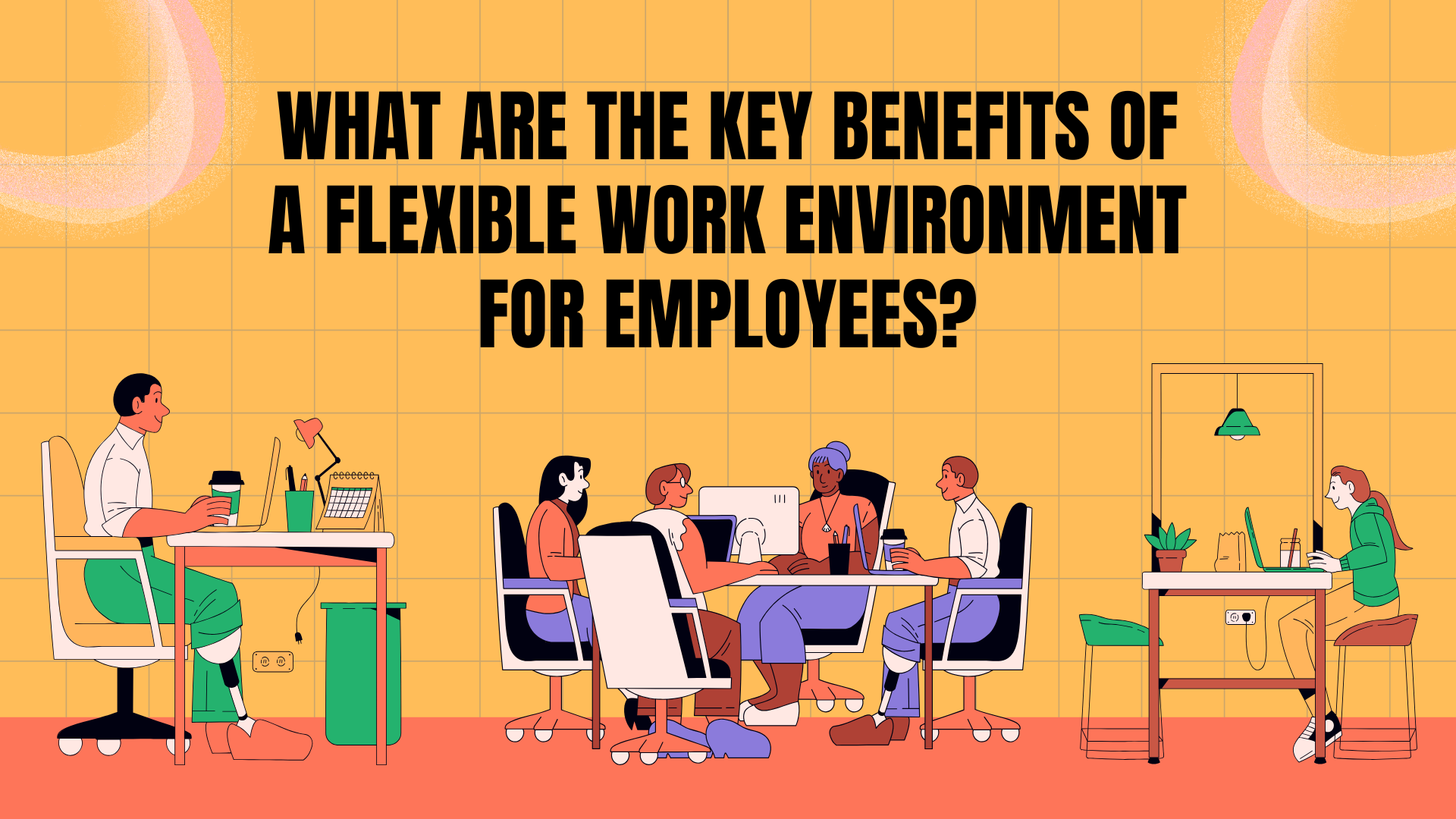What Are the Key Benefits of a Flexible Work Environment for Employees?

Why are employees increasingly demanding work setups that allow choice, autonomy, and balance? And why have companies worldwide started shifting their internal policies to support flexibility? The answer is simple: a flexible model creates happier, healthier, and more productive employees.
The main benefits include better work–life balance, higher productivity, reduced stress, stronger job satisfaction, improved autonomy, and better long-term wellbeing.
Let’s break down exactly how these benefits take shape.
How Does Flexibility Strengthen Work–Life Balance?
Work–life balance is the first and most widely recognized benefit. When employees control their start times, break schedules, or work locations, they can manage their personal responsibilities without feeling overwhelmed.
Key reasons balance improves:
- Employees can schedule work around family needs or personal tasks.
- Reduced commuting saves energy and time.
- Personal downtime becomes easier to protect.
- Mental fatigue decreases because work blends naturally into the day.
This shift makes daily life smoother and removes the pressure that traditional, rigid schedules often create. A Flexible Work Environment is effective because it allows work to support life rather than restrict it, especially for employees juggling multiple responsibilities.
Why Does Flexibility Increase Productivity and Focus?
When employees work during their most energized hours, productivity naturally rises. Instead of forcing concentration at fixed times, flexibility allows people to structure tasks around their natural rhythms.
Productivity increases because:
- Peak-focus hours vary for every individual.
- Employees can choose quieter or more stimulating environments.
- Fewer workplace distractions improve output.
- Reduced stress improves the ability to concentrate.
This benefit directly impacts effectiveness and quality of work. Employees accomplish more in less time simply because they are not constrained by a one-size-fits-all schedule. Around this point, workers often begin discovering new capabilities, growth opportunities, and a stronger commitment to professional growth as their mental space expands.
How Does Flexibility Reduce Stress and Burnout?
Burnout doesn't come from workload alone; it comes from a lack of control. Flexibility gives employees choice, which lowers emotional strain.
Stress decreases when:
- Employees manage their own pacing.
- They can take meaningful breaks when needed.
- Health appointments, childcare, or personal tasks become easier to integrate.
- There’s less guilt about handling unexpected situations.
With reduced pressure, employees think more clearly and avoid exhaustion. This leads to healthier emotional balance and a more positive attitude toward their job. A flexible system also eliminates unnecessary rush and tightness in daily routines, making work feel more human and manageable.
Does Flexibility Improve Job Satisfaction and Engagement?
Yes. Flexibility is strongly linked to higher satisfaction. When employees feel trusted to manage their time, they feel valued.
Why job satisfaction improves:
- Autonomy builds confidence.
- Employees experience less resentment and fatigue.
- They can work in environments that fit their personal preferences.
- Trust from leadership creates a sense of belonging.
Flexibility builds a foundation of respect. Employees who feel respected tend to stay longer, engage more, and deliver better results. This ultimately strengthens team culture and improves overall performance across departments. As communication becomes smoother and responsibility is shared more evenly, companies begin seeing measurable improvements in workforce management, especially in collaboration and team coordination.
How Does Flexibility Support Inclusivity and Equal Opportunities?
Rigid schedules often exclude people who cannot fit into strict work windows: parents, caregivers, students, or individuals with health conditions.
Flexible models solve this by offering multiple ways to contribute.
Inclusivity improves because:
- Time constraints become adjustable.
- Employees with mobility challenges can work comfortably.
- People in different life stages can participate equally.
- Part-time contributors integrate more smoothly.
This opens doors for diverse talent and helps employees bring their best selves to work without sacrificing personal commitments. The result is a stronger, more creative, and more balanced team environment.
Does Flexibility Help Employees Build Long-Term Wellbeing?
Absolutely. Flexibility promotes both mental and physical well-being.
Well-being improves because:
- Employees sleep better without early mandatory commutes.
- Healthy activities like exercise or meditation become easier to maintain.
- Emotional burnout decreases.
- Employees feel in control, not controlled.
This long-term benefit is one of the biggest reasons flexible models have become standard in modern companies. When employees are healthy, they are consistent, motivated, and committed to their goals.
You can also watch this video - EmpCloud: One Platform for All Your Workforce Needs!
Conclusion
A flexible work model offers employees real advantages: better balance, higher productivity, reduced stress, stronger satisfaction, and long-term well-being. By giving people the freedom to shape their workday based on their needs, companies unlock stronger performance and deeper engagement. When paired with supportive communication and scheduling strategies, a balanced hybrid work schedule becomes one of the most effective ways to build a motivated, resilient workforce.
FAQs
- What is the biggest benefit of flexible work for employees?
Better work–life balance is the top advantage.
- Does flexibility improve work quality?
Yes. Employees perform better when they choose their ideal environment and timing.
- Does flexibility reduce burnout?
Absolutely. More control leads to less emotional strain.
- Are flexible jobs only remote?
No. Flexibility can include hours, locations, compressed weeks, or results-driven structures.
- Do companies benefit too?
Yes. Flexibility leads to higher retention, better morale, and stronger performance.
- Art
- Causes
- Crafts
- Dance
- Drinks
- Film
- Fitness
- Food
- Jogos
- Gardening
- Health
- Início
- Literature
- Music
- Networking
- Outro
- Party
- Religion
- Shopping
- Sports
- Theater
- Wellness






